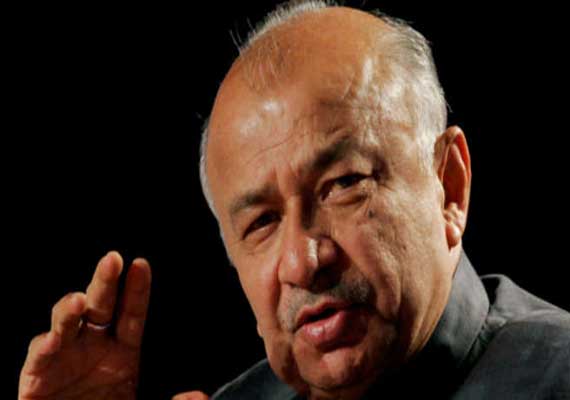New Delhi: The file carrying details of purported inquiry into Home Minister Sushilkumar Shinde's gaffe disclosing names of Bhandara minor rape victims in Rajya Sabha is not "traceable" in the ministry.
After maintaining silence on an RTI application for nearly six months, the ministry has admitted before the Central Information Commission that the "file concerned" was not traceable in the ministry.
Issuing a show cause notice to the ministry to explain reasons for not responding to the application in the mandatory period, Information Commissioner Vijai Sharma said, "It is clear from the hearing and the material on record... That the respondent (Home Ministry) had contravened the legal provisions."
During the hearing, Home Ministry could not explain any reasons for not responding to the RTI application.
When asked further by the Commissioner, the Central Public Information Officer merely admitted they could not send any response as the file was not traceable.
"The respondent stated that without referring to the file it was difficult to provide a reply to the RTI application. Respondent stated that as per his knowledge there was no order from the government to conduct an enquiry but they had to confirm this fact from the file only," CIC noted in the order.
On March 1, 2013, in a statement on the issue of alleged rape and murder of three minor girls in Bhandara, Maharashtra, Shinde had made public the names of victims.
After the mistake was pointed out by leader of Opposition Arun Jaitely, the names were expunged from the House records.
When asked by reporters, Shinde had said he had directed the Home Secretary to probe the matter as to how these names formed the part of his statement in Rajya Sabha.
The RTI applicant sought to know whether any inquiry was conducted as announced by Shinde and other details related to the purported inquiry.
The ministry did not respond to the application and the first appeal filed by the applicant before the Joint Secretary level officer was also not given any hearing.
The silence from the ministry prompted the applicant to approach the transparency panel with a complaint against the CPIO seeking imposition of penalty as mandated under the RTI Act.
"Complainant stated that if file was not traceable the available facts should have been provided... Within prescribed time under the RTI Act. Complainant stated that the respondent took the RTI Act very casually," the show cause notice noted.
The Commission directed the CPIO to show cause within 30 days "why action should not be taken against the respondent under section 20(1) of the RTI Act for contravening the provisions of the Act".
According to the RTI Act, it is mandatory for a CPIO to respond to the query within 30 days else the CIC may slap a fine of Rs 250 per day from the date information delivery became due and date it was actually provided.
The Delhi High Court has also instructed the Commission that imposing a penalty is mandatory in case the panel is satisfied that there is no reasonable ground for delay in furnishing the information.
Former CIC Wajahat Habibullah said, "Once the CIC is convinced that there is no reasonable grounds for delay in furnishing information, it is mandatory for the commission to impose a penalty on the CPIO. The law says commission 'shall' impose penalty and this has been held in a number of high court orders."

